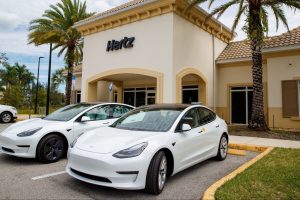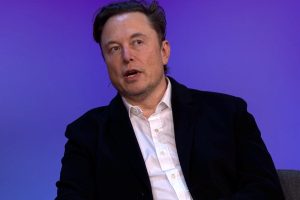- 🚗 Trump considers ending the $7,500 EV tax credit, calling it “ridiculous.”
- 👨💼 Trump expresses interest in Elon Musk for an advisory role if elected.
- 🤝 Musk denies discussing any role within Trump’s potential administration.
- 🗳️ Despite anti-EV sentiments, Musk endorsed Trump in the 2024 election.
- 🎙️ Trump and Musk had a conversation on X Spaces, inviting political figures.
The rising influence of electric vehicles (EVs) in the automotive industry has transformed eco-friendly technology from a niche market to a mainstream necessity. However, as political dynamics shift, so does the fate of initiatives like the $7,500 EV tax credit. With former President Donald Trump’s recent statements about potentially scrapping this incentive and offering Elon Musk an advisory role, the crossroads of politics, industry, and environmental policy have never been more poignant.
Understanding the Current EV Tax Credit
The $7,500 EV tax credit was established to encourage the adoption of electric vehicles by reducing their effective purchase cost. This incentive has been pivotal in pushing both consumers and manufacturers toward sustainable technology. For many buyers, the tax credit has been the deciding factor making EVs financially attractive compared to traditional vehicles.
Trump’s Perspective on the EV Tax Credit
Donald Trump has labeled the $7,500 EV tax credit “ridiculous.” His stance highlights a broader skepticism about tax incentives and whether they truly benefit the economy or simply act as unnecessary governmental intervention. Ending the credit could potentially slow EV adoption and tilt the balance back towards fossil fuel-powered vehicles.
Key Points of Discussion:
- Economic Impact: Ending the credit might save government funds in the short term but could stall the long-term growth of the EV industry, which is set to play a crucial role in future job creation and technological innovation.
- Environmental Consequences: The removal might hinder progress towards achieving lower emissions in the transportation sector.
Elon Musk: A Political Role?
Trump has floated the possibility of including Elon Musk in his administration as an advisor, should he be elected. Musk’s solid standing in the tech and business world makes this an intriguing proposition.
Musk’s Measures and Motives:
- Industry Expertise: Musk leads companies poised at the forefront of innovation, potentially bringing invaluable insight to policy-making, particularly concerning technology and sustainability.
- Denial of Discussions: Despite Trump’s comments, Musk has denied any talks about joining Trump’s administration, indicating a complex political dance rather than a straightforward alignment.
Musk’s Endorsement and Its Dichotomy
Despite apparent anti-EV sentiments, Musk has endorsed Trump for the 2024 election. This endorsement raises questions about Musk’s political strategy and objectives.
Analyzing the Endorsement:
- Strategic Positioning: Aligning with Trump could benefit Musk’s companies by potentially influencing future legislation in favor of business growth, despite policy disagreements.
- Political Pragmatism: Musk’s endorsement suggests a keen awareness of navigating political alliances to steer initiatives that benefit his interests and enterprises.
The Trump-Musk Discourse on X Spaces
A recent conversation on X Spaces between Trump and Musk has sparked dialogue about leadership, technology, and the political landscape. Such discussions could be pivotal in shaping the future trajectory of energy policies.
Insights from Their Conversation:
- Media and Influence: These public exchanges emphasize the growing influence of social media platforms in political discourse.
- Inviting Leaders: Musk’s invitation to Democratic candidate Kamala Harris for a similar forum underscores a desire for open dialogues across party lines and viewpoints.
Conclusion: Looking Ahead
The potential removal of the EV tax credit, Musk’s political endorsement, and his interactions with Trump, all point towards a significant evolution in how political and business leaders might approach the intersection of policy and technology. As this story develops, stakeholders across the board—from environmentalists to industry leaders—will need to carefully consider their positions and the broader implications of these political and economic maneuvers.





